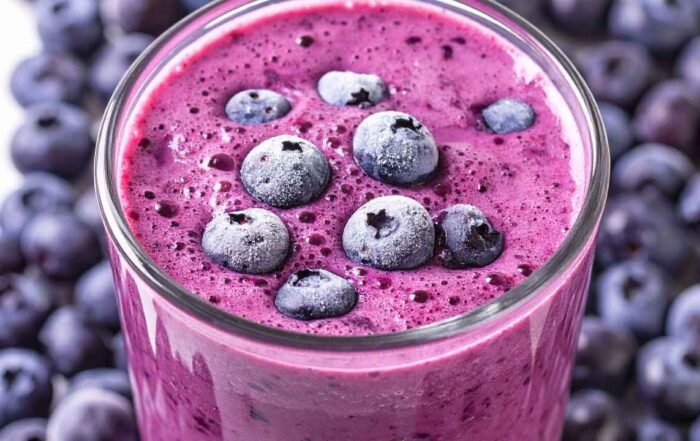In this Article

Students wanting to improve mental performance have long turned to coffee as their go-to fuel. That morning cup appears vital whether you’re studying or working to keep sharp. Recent studies from Harvard Medical School and Johns Hopkins University offer strong proof regarding coffee’s influence on brain function, memory, and concentration for studying in 2025.
The Science Behind Coffee And Focus
Caffeine inhibits the adenosine receptors in your brain that usually make you tired. Your brain produces dopamine and norepinephrine when obstructed, which enhances attention and focus. Particularly while tired, studies reveal that caffeine enhances cognitive performance, concentration, and alertness.
Studies show that caffeine in doses of 40–300 mg helps to improve alertness, attentiveness, and response time. Based on regulated research, the European Food Safety Authority validates 75–150 mg increases alertness. Less steady changes in memory and decision-making are seen than in attention-based activities, though.
Coffee And Mental Alertness Studies
Several institutions have recorded the effects of coffee on mental performance. Caffeine improved reaction times and boosted alertness scores in a study of 24 pupils. The National Center for Biotechnology Information published thorough research confirming these. Findings of studies by EFSA show a notable enhancement in selective and sustained focus as caffeine dosage rises.

Coffee For Studying | Benefits And Limitations
For students, coffee offers actual benefits; however, it is not a magical cure. Among the main advantages are improved response times, heightened awareness, and improved maintained focus during study periods. Coffee is most effective when coupled with decent study habits instead of replacing enough sleep and nutrition; moderate intake improves attention-based activities and lowers mental fog from lack of sleep.
Timing is essential since the cognitive boost lasts 3–5 hours. Because individual tolerance varies widely, results vary between persons. For sustained energy without crashes, quality counts.
Short-Term Benefits For Concentration
Coffee offers apparent, temporary cognitive gains. Studies reveal that caffeine sorts distractions while improving focus on particular activities. The alertness surge starts in 15–30 minutes and lingers for many hours. After consumption, students claim to be more mentally alert and better suited to handle difficult content.
Possible Downsides Of Too Much Coffee
Too much coffee might sabotage research objectives. Jitters, anxiety, and inability to focus result from excessive caffeine intake. University of Texas studies indicate evening coffee causes dangerous, impulsive choices. High doses disturb sleeping patterns, so generating cycles whereby more coffee fights tiredness from bad sleep quality.
Best Coffee For Focus And Memory In 2025
Choosing coffee for studying is influenced by roast level, brewing technique, and time which affect cognitive advantages. Light roasts include a little bit more caffeine than dark roasts. Espresso provides rapid absorption; cold brew provides consistent caffeine release.
Although the best coffee for focus differs personally, consistency aids your body in generating expected reactions. Quality counts; organic, single-origin beans deliver clearer energy free of crashes. When choosing brewing techniques for longer-lasting effects, take your study schedule into account.

Light Roast Vs Dark Roast For Focus And Memory
Light roasts provide somewhat more caffeine and preserve more brain-supporting antioxidants. The more vivid acidity offers more notable alertness raises. Smooth flavor with a touch less caffeine is found in dark roasts; however, they are easier on sensitive stomachs throughout extended study sessions. Both provide cognitive advantages.
Cold Brew Coffee For Steady Energy And Concentration
Suitable for long study sessions, cold brew delivers sustained caffeine release over many hours. The brewing process lowers acidity, hence lowering stomach irritation during continuous study. Smooth caffeine delivery helps you to prevent energy crashes and swings. Cold brew helps many students to maintain constant focus without trembling.
Best Coffee For Focus During Long Study Hours
Medium roasts with moderate caffeine content work well for marathon study sessions without overstimulating your nervous system.
Best Coffee For Memory And Brain Health
Beyond the quick cognitive advantages, coffee has strong antioxidants that help to preserve brain health over time. Studies show caffeine might slow the development of beta-amyloid plaques, a symptom of Alzheimer’s disease, while antioxidant qualities shield memory-important brain regions like the hippocampus.
Directly increasing neuronal survival signaling in aging brains, research reveals coffee has anti-inflammatory and antioxidant qualities. Best coffee for memory includes those rich in chlorogenic acids and helpful substances. Research from McGill University indicates that raising from one to two daily cups might reduce beta-amyloid buildup by 5% and executive function deterioration by 8%.
Antioxidants In Coffee And Cognitive Support
| Antioxidant Compound | Brain Benefit | Coffee Source |
| Chlorogenic Acids | Reduces inflammation | All coffee types |
| Quinides | Neuroprotection | Medium/Dark roasts |
| Trigonelline | Protects blood vessels | Light roasts |
| Caffeic Acid | Memory support | Unfiltered coffee |
Anti-inflammatory, antioxidant, and neuroprotective characteristics among coffee’s pharmacological effects While offering immediate cognitive advantages, these chemicals help to preserve general brain health. High levels of trigonelline in coffee beans may activate antioxidants, therefore efficiently shielding brain blood vessels.

Research On Coffee And Memory Retention
Research at Johns Hopkins verifies that caffeine increases long-term memory since individuals ingesting caffeine tablets following seeing pictures demonstrated improved retention. Studies done at Harvard Health indicate caffeinated beverages assist to maintain memory and cognitive abilities into old age. Concerning working memory impacts, nevertheless, results remain erratic.
Tips For Using Coffee Wisely While Studying
- Use coffee wisely to boost studying benefits while reducing side effects.
- Time consumption around natural energy cycles instead of drinking randomly.
- Start with small amounts and increase gradually if needed.
- Pair coffee with healthy snacks to keep blood sugar stable.
- Stay hydrated by drinking water alongside coffee.
- Avoid late-day intake to prevent sleep disturbances.
- Track doses and timings to identify what works best for your performance.
Ideal Timing For Drinking Coffee
The perfect time is 30 to 60 minutes before you have to peak in mental performance. When cortisol levels are naturally high, stay away from early morning consumption. Mid-morning eating offers most ongoing advantages. Stop intake at least 6 hours before bedtime to preserve sleep quality.
Pairing Coffee With Smart Study Habits
For greatest advantage, mix coffee with tried-and-true methods like spaced repetition and active recall. Use strategically during difficult assignments rather than consuming consistently. Take regular breaks even when caffeinated to prevent mental fatigue. Balance with appropriate nutrition and hydration.
Final Thoughts | Should You Use Coffee For Focus And Memory?
Coffee can be valuable for studying when used thoughtfully and moderately. Research shows cognitive benefits work best as part of comprehensive learning approaches.
Key Findings
- Coffee improves alertness, attention, and reaction time consistently
- Memory benefits exist but vary between individuals
- Antioxidants support long-term brain health
- Timing and moderation are crucial for optimal results
Best Coffee Consumption for Different Scenarios
| Study Scenario | Recommended Coffee | Timing | Amount |
| Morning Study Session | Light roast | 30 min before | 1-2 cups |
| Afternoon Focus | Cold brew | 1 hour before | 1 cup |
| Evening Review | Avoid coffee | N/A | None |
| All-Day Studying | Medium roast | Morning only | 2-3 cups max |
Coffee enhances good study habits but cannot replace adequate sleep, proper nutrition, and effective learning strategies.
People Asked about Coffee for Memory (FAQs)
How much coffee should I drink for studying?
Research suggests 75-150mg caffeine (about 1-2 cups) provides optimal cognitive benefits without negative effects. Start with one cup and adjust based on tolerance.
When is the best time to drink coffee for studying?
Ideal timing is 30-60 minutes before needing peak performance. Avoid immediate morning consumption or within 6 hours of bedtime.
Does coffee actually improve memory or just alertness?
Coffee consistently improves alertness and attention. Johns Hopkins research shows positive long-term memory effects, but memory benefits vary more than alertness improvements.









